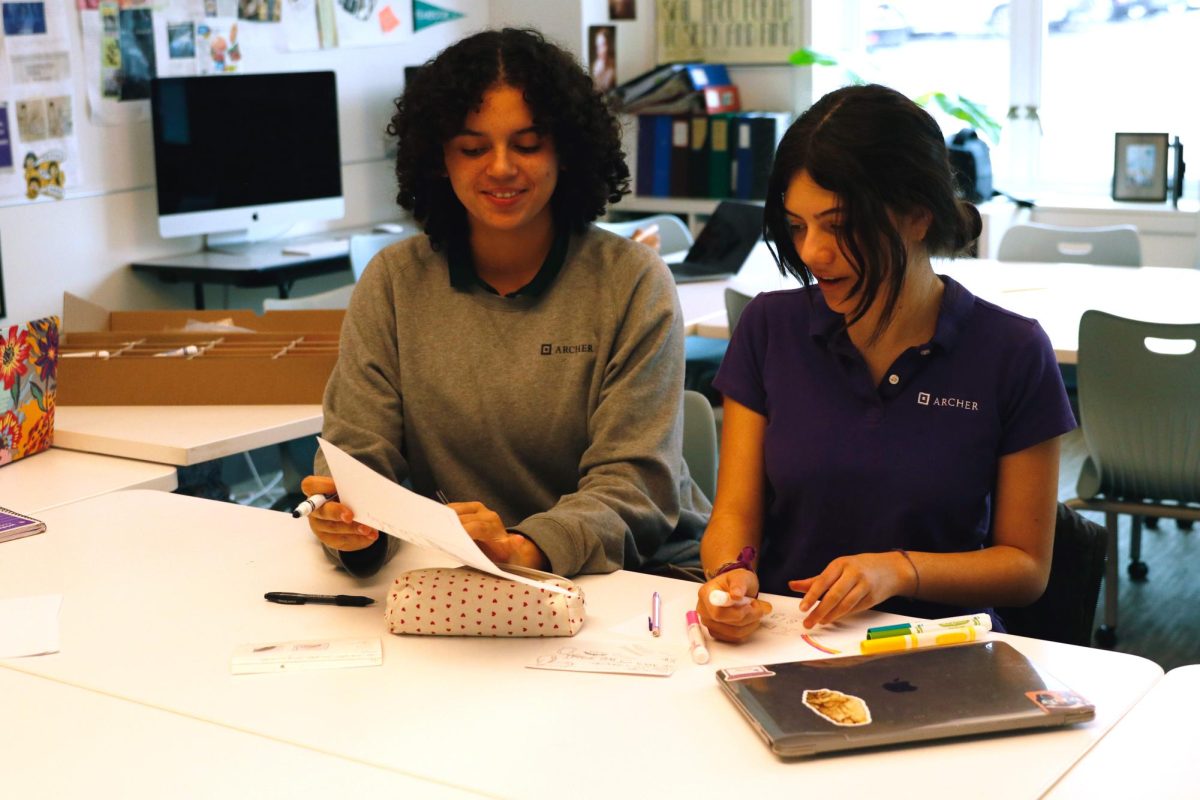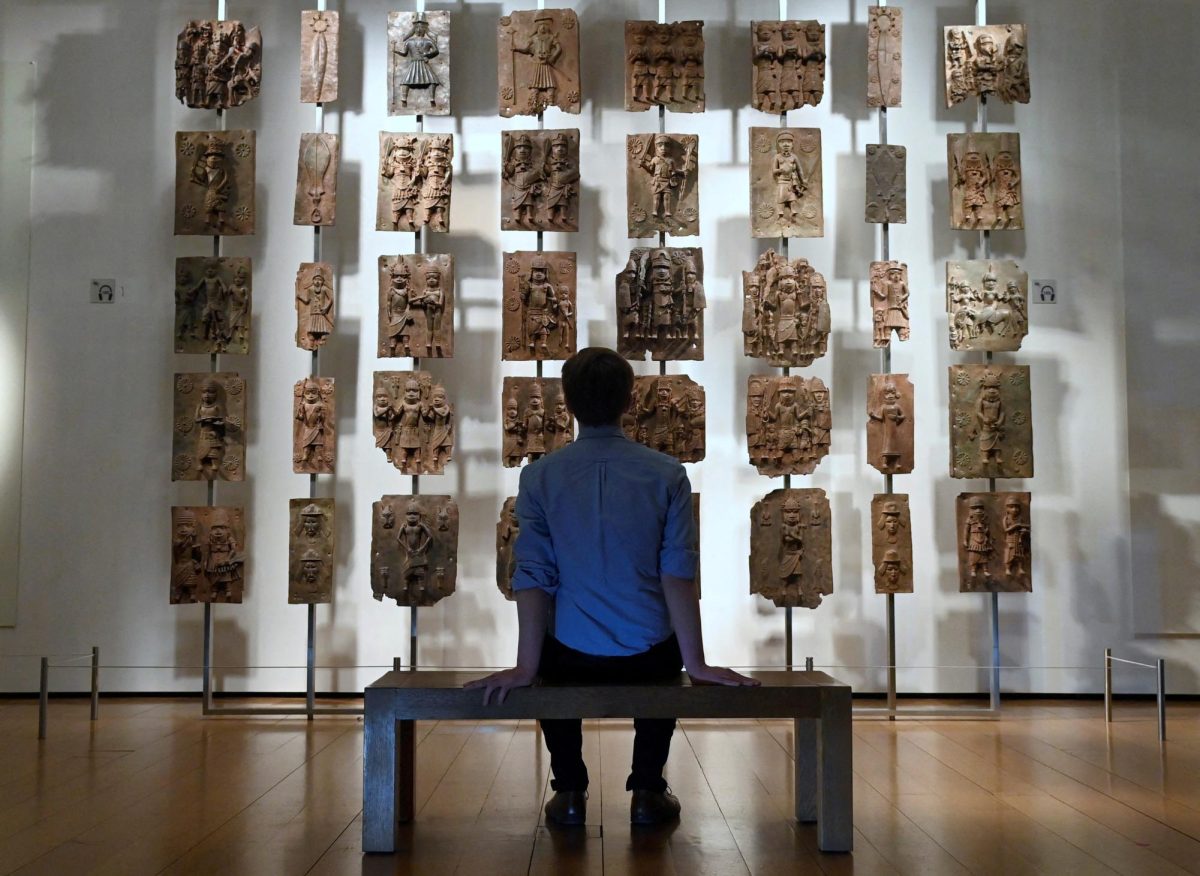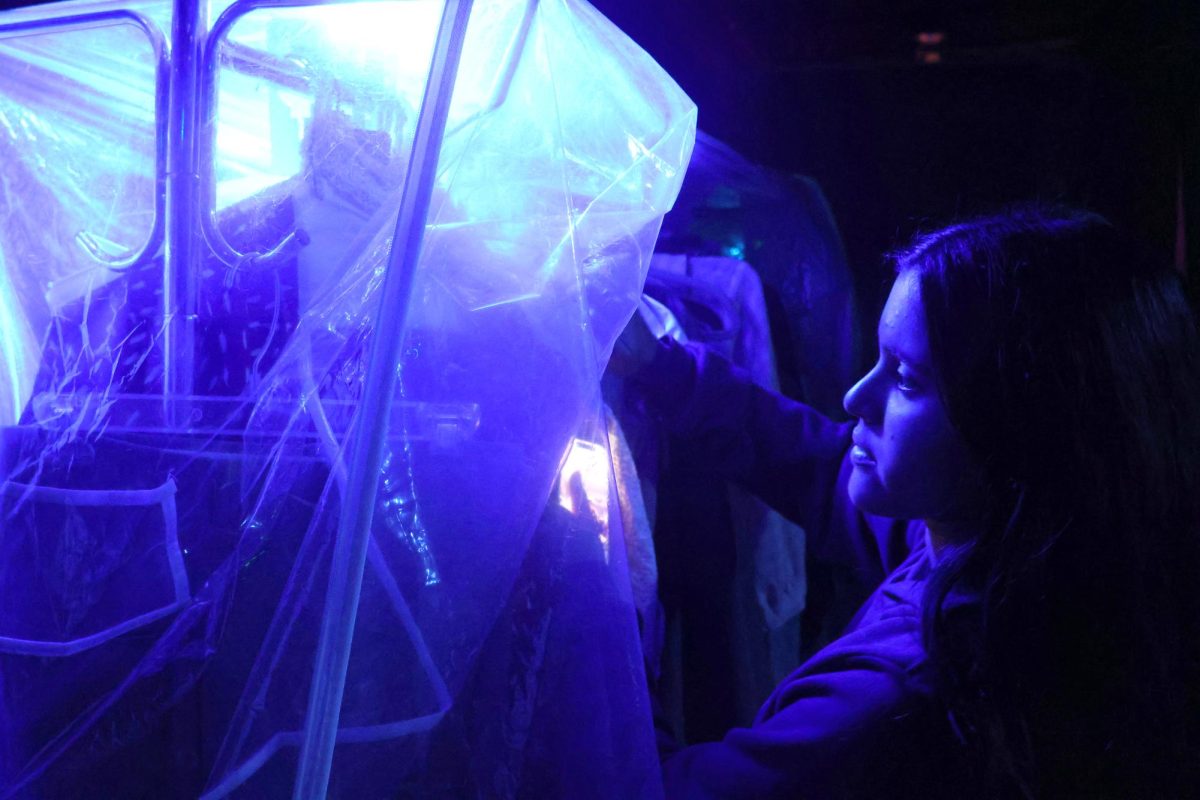The feeling of checking your email for the hundredth time hoping to see a response from your dream school. The pressure of perfecting your essays and keeping your grades flawless. The anxiety of waiting for a decision that society says will shape your future.
These moments may seem like usual aspects of the college application process, but in reality they come with a high emotional cost. Not to mention the added influence of social media, where constant comparison can change how one defines success. Student perspectives from across the nation indicate the process contributes to teenagers’ stress and mental health struggles.
According to a survey conducted by the Education Advisory Board, 29% of high school students’ stress regarding college is attributed to the cost of college. Students surveyed also raised concerns about personal challenges such as mental health, time management and family responsibilities. Similar to academic pathways, including course selection, academic pressure and career uncertainty. Around 28% of high school seniors surveyed voted that taking the ACT or SAT, writing essays or finishing applications contributed to the anxiety built up during the process.
Pressure and stress

In their roles as college guidance counselors, Ivan Hauck and Shalyn Tharayil guide students through the complexities of the college application process. Hauck has worked at Archer for five years and is the head of the college guidance department. Tharayil has been a college counselor for 10 years and began working with Archer students two years ago.
Hauck and Tharayil introduce students to the Identity, Community, and Impact (ICI) framework in ninth grade. This program helps students reflect on who they are, the communities they are part of and the impact they want to make. Each year, students revisit their ICI’s to assess where they currently stand and set goals for deeper involvement, stronger connections and greater impact in their academic and extracurricular lives.
In 11th grade, each student is assigned to one of the college counselors. During Human Development class, Hauck and Tharayil work with students once a rotation to discover various college pathways options and opportunities. From January to February, counselors meet with students and their families to discuss the process in more detail, and between February and March, students have one-on-one meetings with their counselor to dive deeper into their individual college plans. Finally, in 12th grade, students have weekly or biweekly meetings and work closely with the college counselor to fill out applications.
Hauck said that burnout and stress can negatively affect many students’ experiences and overall well-being throughout the college application process.
“The students who struggle most and begin to feel burnout in the process are the students who unfortunately have internalized this idea that if they don’t attend one specific school, then their life will not be good,” Hauck said.
Chelsea Miro, a college counselor with nine years of experience, leads students through every step of the college admissions journey. She focuses on helping them build strong applications and find colleges that are the right fit for them. Miro emphasized the importance of aiding students in managing their stress and focusing on what they can control.
“When your college list aligns with your grades and extracurriculars, the process becomes much more manageable and clear,” Miro said. “If you’re doing your best, that’s all you can do. Let go of what’s out of your control, and it will feel easier to get through.”
Tharayil said finding a healthy balance between perseverance and avoiding burnout can be especially difficult in times of uncertainty. Students have to deal with the emotional effects of disappointment and understand that it takes time to heal. Tharayil said Being open-minded to multiple outcomes and results can help alleviate anxiety.
“The biggest thing, which is easier said than done,” Tharayil said, “is not associating too much of your value and your worth with the results.”
Senior Julianna Hatton emphasized the importance of staying grounded and focused on personal goals and said that everyone navigates the college application process in their own way.
“Taking your own journey and not measuring yourself against a standard of somebody else’s version of success or somebody else’s version of where they want to be,” Hatton said. “is a valuable lesson and important to understand.”
Miro said resilience is essential for managing the challenges that often come with the college application process. As students face the challenges of selecting schools, preparing essays and waiting for decisions, maintaining a positive mindset becomes crucial. Rather than allowing setbacks and failures to define them, she said perseverance allows students to keep a broad perspective and have a growth mindset.
“Students who are most resilient are those who go into the process with the mindset that they will do their best,” Miro said. “They understand that if they don’t get into a specific school, it doesn’t mean they’re a failure, and that regardless of where they go to college, their life will still be okay.”
The influence of social media
Merriam-Webster defines success as the accomplishment of an aim or purpose, however its meaning can vary from person to person. Yet with the rise of social media, success is often viewed through a narrow lens. Hauck said this creates pressure to follow the fast-paced paths of others and results in little room for personal growth and individuality.
Learning specialist Stephanie Wald said the pressure students feel from social media isn’t just internal, but it can also come from family, school and perceived expectations from colleges.
“Stay away from social media, or stay away from those accounts that really are triggering towards you and your personal achievements,” Wald said. “Instead, set up what you define as success for yourself and work towards that instead of what others want you to look like.”
Miro said social media and the overwhelming amount of advice it portrays of college life can create unnecessary pressure, making students feel like they have to meet high expectations. It can also influence their school choices, potentially leading them to prioritize popular schools over what the best fit for them is.
“Social media creates this glossed-over image of what college life will be like,” Miro said. “When students face the reality of hard days or struggles, it’s hard for them to cope because it doesn’t match the perfect picture they’ve seen online.”
When Hatton was asked about her experience with social media, she shared a unique perspective. Since she does not have social media, she was able to avoid the distractions and pressures of seeing others’ college results.
“I wasn’t seeing people committing or getting denied. I wasn’t seeing the results in real time,” Hatton said. “Even though I may have been disconnected from the college process of my peers, I think that helped me not measure myself against a standard of somebody else’s version of success.”
Tharayil said that social media is a “highlight reel” and does not fully reflect the full human experience and emotions of disappointment, sadness, happiness and joy. Similarly, Hauck said social media can be problematic and result in comparison among students.
“Each individual’s journey is unique, and success will look different for everyone,” Hauck said. “Hopefully through a lot of conversation and reminders, students can remember that and not compare themselves to each other to create a more healthy balance.”
The clip above shows Chelsea Miro, a college counselor, sharing a story about a student she worked with during the college application journey. She talks about the process they went through and the guidance she provided along the way.
Correction Statement (April 24, 2025, 9:10 a.m.): A previous version of this article included inaccurate quotes and information about a program. The content has been revised to reflect the intended message of the article.















Shilpa Mysoor • Apr 14, 2025 at 4:29 pm
Very insightful and helpful as we are in the process with our son.